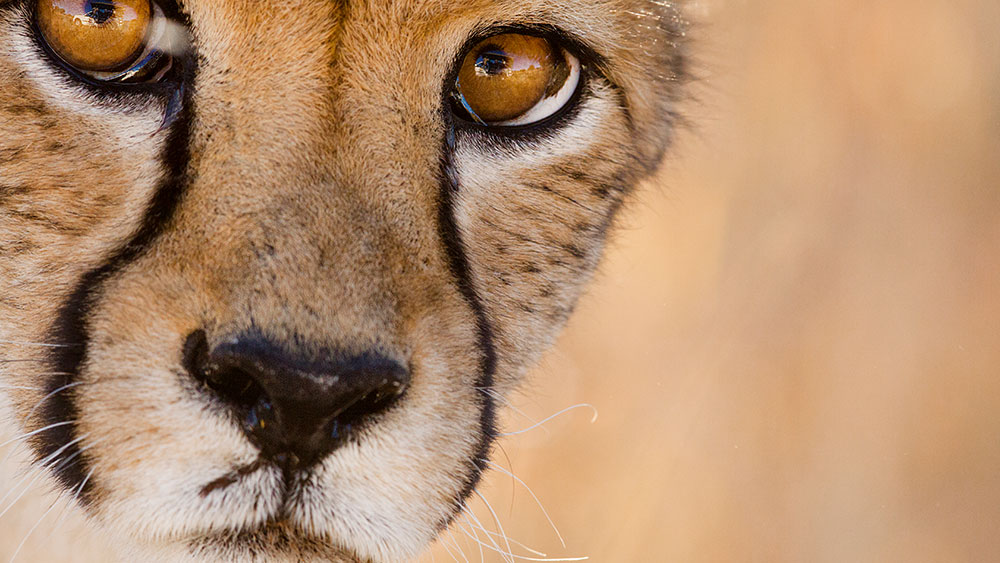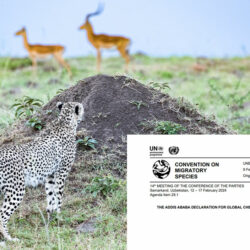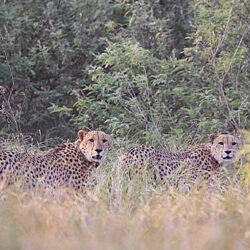Cheetah Populations Continue to Decline Across Africa
-

- by CCF Staff January 2, 2017

CCF researchers co-authored a report on the decline of the wild cheetah that has created awareness around the world. “Disappearing spots: The global decline of cheetah Acinonyx jubatus and what it means for conservation” puts the number of remaining adult cheetahs at just 7,100. Published Dec. 26, 2016, in Proceedings of the National Academy of Sciences (PNAS), this somber news has touched off a flurry of international media coverage and generated a thunderous outcry from the public, resulting in an intense interest in this iconic big cat’s plight.
The Associated Press and the BBC broke the story, which was quickly picked up by many news outlets in the U.S., Canada, France, Australia and the U.K., leading to additional coverage in Pakistan, Sri Lanka, Qatar, Australia, Zimbabwe, South Africa and China. I was interviewed by several journalists for television programs and international wire services. You can watch my interviews with Sky News, France 24 and Deutsche Welle (German TV) here.
These dire numbers have sounded the alarm for cheetah range countries to take action. If nothing is done to stop this course, cheetahs could soon be gone. Conservationists are now calling upon the International Union for the Conservation of Nature (IUCN) to upgrade its classification of the world’s fastest mammal from “vulnerable” to the more serious category of “endangered” due to the majority of the remaining populations are found outside of protected areas.
While the situation is critical, there is hope.
In Namibia, cheetah populations have stabilized, due in large part due to CCF’s education and livelihood development programs. Namibia has the largest remaining population of wild cheetah, earning the nickname “Cheetah Capital of the World.” With more than half the remaining population found in southern Africa, we are joining with other conservation organizations to deploy CCF’s highly effective strategies across borders to impact the cheetah through its range.
From our report we know that cheetahs can decline drastically over a short period, but we also know from our work in Namibia that the species can rebound.
Please support our efforts to save the wild cheetah across its range. We must all join together and act quickly, now, before it is too late. Once cheetahs are gone, they are gone forever.
Related Reading
-
February 19, 2024
The Addis Ababa Declaration for Global Cheetah Conservation -
June 2, 2023
Project Cheetah Update




